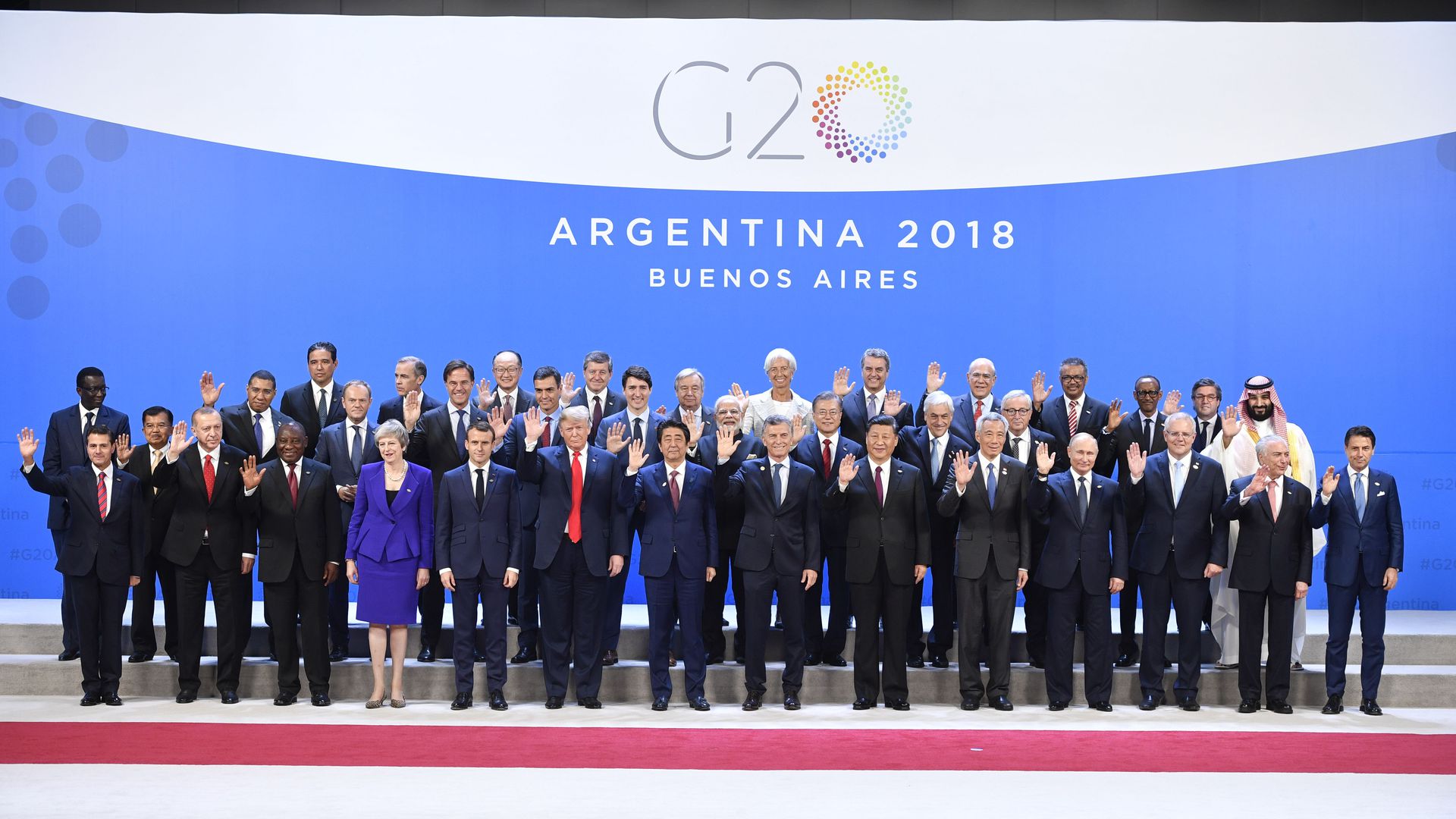Refocusing on the G20 Policy Agenda: Beyond the Summitry Show
The Group of Twenty (G20) annual summit, this year hosted by Argentina in Buenos Aires, has just ended. As the media, experts, diplomats, leaders, and their entourages make a swift exit, citizens are left to wonder what the G20 actually does, apart from serve for photo-ops and reality-TV style analysis, like a who’s hot and who’s not of global diplomacy.
The Twitterization of political coverage has benefits and disadvantages, but the lack of depth-of-analysis from media outlets, despite 24-hour news, increases the importance of providing genuine opportunities for people to learn about the G20 policy agenda. It is imperative to shift attention to the substance of these policy debates, to how we could improve the governance of issues that impact citizens. Experts and analysts should try to refocus minds on enhancing people’s lives through G20 cooperation, rather than provide ‘infotainment’ from watching political personalities.
There was substantial speculation about whether the G20 leaders’ communiqué would even be produced this weekend, or whether disagreements would make this impossible; but it was, as usual. The G20 has experienced some difficult summits since becoming a leader-level forum in 2009, for example the Toronto Summit of 2010, due to macroeconomic disagreements, and the Brisbane Summit of 2014 over security issues. The summit declarations were, nevertheless, still produced. The concerns that this time would be different were fed by doubts about U.S. President Donald Trump’s willingness to endorse a joint G20 agreement, following his unprecedented refusal to support the traditional leaders’ declaration at the recent Asia-Pacific Economic Cooperation (APEC) Summit.
The same key issue seemed to overshadow both summits: the growing China-U.S. trade dispute. Much of the commentary leading up to the Buenos Aires summit speculated, especially, about the scheduled or unscheduled bilateral leaders’ meetings and the Trump–Xi sideline summit. In the end, the much-hyped Trump-Xi meeting ended with an apparent ‘trade-war’ truce, with a mutual halt to increasing tariffs. Despite the initial pessimism over trade, the G20 took a potentially crucial step by agreeing in Argentina to seek reform of the World Trade Organization (WTO). Argentine President Mauricio Macri indicated, in his post-summit press conference, that the G20 had agreed a reformed or “more agile” WTO dispute-resolution system would be the main focus of these efforts in the coming months.
There were several agreements in the leaders’ declaration, with endorsements of the Argentine G20 Presidency’s priorities on digitalization and the future of work, on gender economic equity, on healthcare, and on infrastructure, including the need to reduce corruption to enhance infrastructure development. There was a further commitment to support the 2030 sustainable development agenda; and, interestingly, a reiteration of the climate formula from the Hamburg G20 Summit, with the ‘climate G19’ reaffirming their pledges on the Paris Agreement, while noting the Trump Administration’s decision to withdraw from it.
The G20 has a broad and complex agenda, including medium- and long- term goals, which will continue to develop throughout the coming year under the Japan G20 Presidency. The work on the policy agenda for the Japan presidency has already begun, including by the G20 engagement forums. I participated recently in a Chatham House roundtable, at the British Embassy in Tokyo, for the launch of Japan’s Women20 forum. Next week I will be at the Think20 (T20) Inception Conference in Tokyo, where the T20 task forces will continue to work on a diverse range of policy agendas, including sustainable development, gender economic equity, climate change, financial inclusion, investment, and tax cooperation. The transition to Japan’s G20 Presidency is very much underway, among diplomats, governments, and other stakeholders.
The ministerial and sherpa meetings, working group sessions, and meetings of the official engagement forums are crucial to the policy agenda, sustaining dialogue through a succession of rotating host presidencies. G20 stakeholders should consider how to engage citizens and media in the policy agenda throughout the year, so important policy issues do not become marginalized or crowded out by the summit fanfare. I am organizing a conference on December 10th at Soka University in Tokyo, on the theme ‘Prospects and Possibilities for Japan’s 2019 G20 Osaka Summit,’ with co-organizers from the University of Toronto’s G20 Research Group, the Griffith Asia Institute of Griffith University, and the Russian Presidential Academy of National Economy and Public Administration. Our intention is to contribute to dialogue on the complex issues and priorities for Japan’s G20 Presidency year.
The summits are the tip of the G20 iceberg; the challenge is to keep attention focused on the policy agendas throughout the year. Greater scrutiny from citizens and media would increase the pressure on G20 leaders to uphold their summit pledges. Stakeholders, including the official G20 engagement forums, should consider how to utilize support and interest from media outlets and the general public. It will be fascinating to see what happens to the new WTO reform agenda, and whether the other Argentina G20 Presidency’s priorities and the Buenos Aires leaders’ declaration are gradually implemented.

This article is published under a Creative Commons Attribution-NonCommercial 4.0 International licence.

